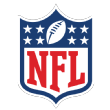NFL Week 1 surprise wins, losses, players: Lessons from Sunday ...
Bill Barnwell, ESPN Staff WriterSep 9, 2024, 01:55 PM
Close
Bill Barnwell is a senior NFL writer for ESPN.com. He analyzes football on and off the field like no one else on the planet, writing about in-season X's and O's, offseason transactions and so much more.He is the host of the Bill Barnwell Show podcast, with episodes released once a week. Barnwell joined ESPN in 2011 as a staff writer at Grantland. Follow him on Twitter here: @billbarnwell.

Week 1 usually delivers a few surprises, but the shocks came before the games even started this week. By 1 p.m. ET Sunday afternoon, Dolphins wide receiver Tyreek Hill had been briefly detained by police on his way to the game in Miami, and we would later find out that teammate Calais Campbell had also been placed in handcuffs. The contractual saga of the summer ended, as quarterback Dak Prescott inked a four-year, $240 million deal to stay with the Cowboys. We even found out that Kendrick Lamar was going to perform the halftime show at Super Bowl LIX in New Orleans in February. That's a full day before we even got to a single snap of football.
Subscribe: 'The Bill Barnwell Show'
I subsequently spent most of the day noticing things about Week 1 that were either very surprising or extremely unsurprising, and since I want to hit on as many games and stories as possible from the first Sunday of football, that seemed like a good way to approach this recap.
Ten of the 12 games from Sunday afternoon end up coming up in one section or another, although it would have been easy to add a dozen more interesting things that stood out. Let's get into the biggest storylines from Week 1:
Jump to a section: New England's upset | Watson's terrible day Darnold's hot streak | Prescott's new deal Rookie QBs underwhelmed | Houston's debuts Chicago's comeback | Pittsburgh's ugly win Richardson's up-and-down day | Two safeties?! Carolina's blowout | A head-scratching punt
Surprising: The Patriots upset the Bengals in CincinnatiThere has been no shortage of people prepared to write off the Patriots in 2024, a list that seemingly included the Pats themselves. They traded edge rusher Matthew Judon to Atlanta before the season, and after top-five pick Drake Maye outplayed veteran quarterback Jacoby Brissett in the preseason, the organization elected to start Brissett, reportedly out of concern the rookie might suffer an injury playing behind a porous offensive line.
Brissett took a few hits and got up from the ground grimacing at times, but winning has a way of making those blows feel a lot better on the plane ride home. The veteran threw for 121 yards on 24 pass attempts, but he played his role to a T in a 16-10 upset victory over the Bengals.

New England's winning formula was always going to be clear this season: Protect the football and get by with a wildly underrated defense that was the best in football during the second half of 2023 on a drive-by-drive basis. With Brissett's aptitude for avoiding interceptions, the Patriots could stay in games if they won the turnover battle and managed a few competent drives on offense.
Guess what happened? They forced two Bengals turnovers, including a fumble from tight end Tanner Hudson as he was about to score Cincinnati's first touchdown. The league's worst special teams by DVOA a year ago had a much improved day, which peaked when long-snapper Joe Cardona forced a fumble on a punt return, with the ensuing recovery setting up a New England field goal.
The story heading into the game revolved around the health of Cincinnati's star wide receivers. Tee Higgins missed the contest after injuring his hamstring in practice, and Ja'Marr Chase played through food poisoning and defied self-set expectations of a limited role by suiting up for 83.3% of the offensive snaps. On a day when he saw plenty of attention from returning star cornerback Christian Gonzalez, Chase had six catches for 63 yards.
The Bengals simply couldn't find anything that consistently worked against the Patriots' defense. Joe Burrow, who has excelled working out of empty backfields, went 2-of-2 for 5 yards out of empty. New England's secondary held him to 29 yards on 10 pass attempts against man coverage, a place in which Chase and Higgins can typically feast against inferior defensive backs. Keion White beat former teammate Trent Brown on the first of his 2.5 sacks, as Burrow wasn't able to create much under pressure.
Cincinnati coach Zac Taylor eventually found some success running the ball, and that might be where he turns earlier next week. Zack Moss and Chase Brown carried the ball 12 times, and the Bengals have kick-started their offense at times in the past by getting extremely pass-happy on early downs, but the passing offense didn't look in sync Sunday. After getting upset by the Patriots, Taylor & Co. will need to come up with an upset of their own next week as they go to the place they once christened as "Burrowhead" to take on the defending champs in Kansas City.

It's only Week 1, but patience already appears to be wearing thin in Cleveland. One year after making it to the playoffs with five different starting quarterbacks, Browns fans might have been excited to face the possibility of a full year with Watson under center after the quarterback missed most of 2023 with a shoulder injury.
By halftime, the excitement was gone. Watson and the Cleveland offense were booed off the field after a dismal opening 30 minutes against the Cowboys of generating 54 net yards on 22 plays. Watson had gone 7-of-15 for 36 yards and an interception on a pass tipped at the line of scrimmage. His passing chart at the break looked like something out of a Pop Warner game, as the $230 million quarterback had failed to complete a single pass farther than 6 yards downfield:
This is Deshaun Watson's passing chart from the first half. pic.twitter.com/r7Gee2HQDV
— Bill Barnwell (@billbarnwell) September 8, 2024Although Watson managed a 75-yard touchdown drive in the third quarter and a score on the final possession of the game, the Browns were finished in four or fewer plays on 10 of their 14 drives. They lost 33-17. The Cowboys have a great defense -- and Watson didn't get much help when Amari Cooper dropped his best-thrown ball of the day on what should have been a deep touchdown in the second half -- but nobody could have watched this game and suggested he was propelling the offense forward.
There are excuses, but the problem is that what happened with Joe Flacco a year ago pokes holes in many of those arguments. Watson was playing without his two starting tackles in Jedrick Wills Jr. and Jack Conklin, but Flacco thrived when both players were already out for the season in 2023. Nick Chubb wasn't around to propel the running game, but he wasn't around with Flacco last season. Watson lost David Njoku to an in-game ankle injury, but Flacco threw for 309 yards and three touchdowns last season in a game in which he didn't have Cooper. Oh, and Flacco did that against the Jets, who had one of the league's best defenses.
Instead, the Browns seem to be perpetually waiting for a universe in which everything is right and Watson suddenly morphs back into the quarterback they paid so much to acquire. First, his struggles were excused by a season marred by suspension and were going to be solved by a full offseason to practice with his new team. Then, he was being limited by his shoulder injury and his issues would be resolved by surgery. He had surgery and doesn't look any better than the guy we saw a year ago. His minus-8.8% completion percentage over expectation (CPOE) was the sixth-worst mark for any quarterback in Week 1.

You can only fool the players and fans for so long. Watson has now played 13 games in a Cleveland uniform, and it's becoming more and more clear with each start that this isn't working. He looks slow and uncomfortable in Kevin Stefanski's scheme, even as the offense has been shifted more toward his preference of working out of the shotgun. At one point, the obvious solution would have been to move on from the coach and to add someone who can build the RPO-heavy offense he excelled in with the Texans, but after seeing the Browns improve with a replacement-level quarterback coming off the street a year ago, the idea that coaching is the primary problem with this offense has come off the table.
Flacco is gone, but the Browns have an experienced backup behind Watson in Jameis Winston. While the former Bucs and Saints starter has had his ups and downs, Flacco's success last November and December has to encourage fans who are ready to move on from Watson. There can't be many more games like this before the locker room and the fan base turn on Watson, especially given the Browns are returning what was a championship-caliber defense from a year ago. Winston is no sure thing, and I wouldn't advocate benching Watson after one week, but the Browns' offense looked pitiful.
But what, then, do they do with Watson? After paying him a $44.8 million bonus last month, they still owe him more than $93 million in fully guaranteed money over the next three seasons. That is an astronomical sum, and it would take a massive improvement by Watson to have any sort of trade value. Could the Browns really stomach paying him all that money through the end of 2026 to serve as their backup? Would they cut him and eat more than $172 million in dead money? Those options are incredibly unpalatable, but they might pale in comparison to actually relying on him if he continues to play the way he did in Week 1.
Surprising: Sam Darnold had the hottest Week 1 start of any quarterbackIf you've held onto your Darnold bags all these years, your time might have arrived. Once picked with the hopes he would torch bad defenses in the Meadowlands, Darnold returned to his old stamping grounds and laid waste to the Giants, starting his Vikings career by completing his first 12 passes in what would eventually be a 28-6 Minnesota victory.
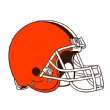
If you remember Zach Wilson's out-of-body half against the Chiefs last season, you know any quarterback can get hot for a stretch. And indeed, Darnold has had quarters and even weeks in which he has looked like a very solid quarterback, most notably during the first few weeks of his time with the Panthers in 2021. Nobody has doubted his arm or physical talent all these years, and he had no trouble making throws Sunday.
What was most impressive about Darnold, though, was his anticipation and ability to throw into open spaces. He hit a seemingly covered Justin Jefferson for 44 yards on a pass that threw the star wideout open. His most impressive throw of the day might have been a 21-yard touchdown pass to Jalen Nailor, where he worked from one side of the field to the other and then back, resetting his feet each time, before lobbing a pass under duress to Minnesota's third wideout for a score.
0:16
Darnold and Jefferson connect for a Vikings TD
Sam Darnold fires a short touchdown pass to Justin Jefferson in the second quarter vs. the Giants.
Although Darnold threw an interception later in the game on a pass in which he was hit in motion, this was a clean day for the 2018 third overall pick. He looked and performed like a player who was in control of his surroundings, something that simply hasn't been the case for him over much of his career.
I can hear what you're saying: It's the Giants, who looked lost on both sides of the football for the second opener in a row. Adoree' Jackson, who was re-signed at the end of camp after the organization saw what it had at cornerback, played 17 snaps and committed a 36-yard pass interference penalty. Offensive lineman Evan Neal, the team's seventh overall pick two years ago, was active but didn't play a single snap, even in a game where the new-look offensive line struggled. Quarterback Daniel Jones managed just 186 passing yards on 42 attempts and threw a pick-six directly to Andrew Van Ginkel on a screen in which the former Dolphins lineman had no trouble penetrating into the passing lane.
Things are about to get much tougher for Darnold and the Vikings. They get the 49ers next week, then follow that with matchups against the Texans, Packers and Jets before their bye week. I've been skeptical of Darnold's ability to thrive when he has to stand up against heavy pass rushes and throw in obvious passing situations, and he has struggled when we've seen him in those moments in the past. What we saw from him in Week 1, though, can only give him confidence as he begins what could be a career-redefining stretch of games.

Even Hall of Fame quarterbacks often struggle in their NFL debuts. John Elway went 1-of-8 for 14 yards with an interception. Peyton Manning threw three picks on 37 passes. Troy Aikman was 17-of-35 for 180 yards in a shutout loss. Joe Montana was 5-of-12 for 36 yards in his first start before giving way to Steve DeBerg. Ben Roethlisberger was 12-of-20 with two picks in a loss to the Ravens and then proceeded to win his next 15 regular-season starts. Even for players who had something resembling instant success, debuts are usually difficult propositions.
It probably should be no surprise, then, that the three first-round picks at quarterback who made their first NFL starts Sunday all struggled. Chicago's Caleb Williams needed significant help from his defense to pull out a comeback victory over the Titans. Washington's Jayden Daniels did more with his legs than his arm in a 37-20 loss to the Buccaneers, while Denver's Bo Nix generated 132 net passing yards on 44 dropbacks in a 26-20 defeat in Seattle.
There were problems that stretched across the divide. For one, they all struggled to create out of structure as passers. This should be a strength for Williams and Daniels, given their college success, but the magic they sprinkled on extended snaps a year ago didn't appear. When the three quarterbacks held on to the ball for more than four seconds, they were a combined 2-of-8 for 29 yards with an interception and five sacks. Williams took the worst sack of the day as he tried to wriggle backward to avoid pressure and lost 19 yards. Chicago began that sequence with a first-and-10 on Tennessee's 25-yard line and ended it with a fourth-and-30 punt from the 45.
While the preseason can give rookie quarterbacks a taste of NFL pressure, most defenses are showing familiar vanilla looks with simple blitzes. The sim pressures and coverage disguises that proliferate at the pro level only make their debut in Week 1, and they usually got home; 48.7% of their blitzes resulted in pressures, and the three rookies didn't make those defenses pay for sending extra defenders. They went a combined 17-of-30 for 105 yards against blitzes.
Our rookies were mostly hanging on for dear life. They went a combined 10-of-29 for 56 yards with an interception and six sacks when pressured in their debuts. Nix, renowned for his quick processing as he won the Broncos job in training camp, looked flummoxed and overwhelmed by Mike Macdonald's pressure packages. He was 7-of-15 for 20 yards under pressure. Losing left tackle Garett Bolles to a midgame injury didn't help.

Naturally, to try to keep their quarterbacks' respective heads from spinning, we saw the offensive playcallers in Chicago, Denver and Washington do what they could to get the ball out quickly. It led to games, especially in Seattle, in which the opposing defense simply wasn't afraid of getting beat downfield. Daniels, Nix and Williams were a combined 4-of-22 (18.1%) for 68 yards and two interceptions on throws traveling 10 or more yards downfield. The rest of the league completed more than 47% of those throws and averaged 11.3 yards per attempt on them in Week 1.
Daniels made an impact as a scrambler and with the occasional designed run, as he converted 18 carries into 88 yards and two touchdowns, a number that unfortunately also matched the number of times his helmet was knocked off during the game. Nix seemed to run out of sheer frustration, as he scrambled for a 23-yard gain to start Denver's final drive against the Seahawks and then produced a 4-yard touchdown to end it. Williams picked up a third-and-10 with an 11-yard scramble but was otherwise quieter than his competitors on the ground.
I wouldn't take the three games as anything to be worried about. The game will slow down for all three. Williams will strike a better balance of when to extend plays. Nix will continue to get faster as he identifies where he wants to go with the football. Daniels' impact as a runner will limit what teams can do against him in coverage and create opportunities in the passing game, even if I wasn't particularly impressed by what I saw from Kliff Kingsbury's offense in his return to the league.
This time a year ago, nobody was talking about C.J. Stroud after he went 28-of-44 for 242 yards and five sacks in a blowout loss to the Ravens. Three weeks later, he torched the Steelers for 306 yards and two touchdowns and never looked back. Let's check back in with these guys in a few weeks.
Surprising: The Bears came back from down 17-0 to win without scoring an offensive touchdownAs you can probably guess, it's difficult to win if you spot the opposing team two touchdowns at halftime. It's even more difficult if you don't manage to put the ball in the end zone with your (highly touted for several months) offense. Since 2000, if you took the teams that were trailing by two or more scores at halftime and that didn't manage to add a passing or rushing touchdown to their ledger before the end of the game, their record was unsurprising: 2-306.

The Bears have upped that mark to 3-306 after Sunday, as they launched a furious comeback in the second half against the Titans and scored 24 unanswered points to win 24-17. For all of the progress Chicago fans were hoping to see with a more complete roster after adding quarterback Caleb Williams, running back D'Andre Swift and wideout Keenan Allen to the mix this offseason, this was a win straight out of the second half of 2023. Heck, it was a win straight out of the Rex Grossman era.
Special teams played a huge role. Earlier in the game, the Bears had lost a possession when Velus Jones did what might have been the most surprising thing of Week 1. It's virtually impossible for a kick returner to muff a kickoff under the new rules, because there's a buffer preventing the coverage team from crossing midfield until a player has caught the football, which would seemingly give a returner plenty of time to fall on a bouncing ball. The only way to lose it would be for the returner to have the ball go through his hands and kick it forward off his foot toward the coverage team, which is exactly what Jones did.
The Bears took Jones off return duties the rest of the way, replacing him with DeAndre Carter, who took a kickoff 67 yards to set up their first field goal. (It seemed to be one of the few plays in which the special teams used a designed run concept, with Chicago running some version of a counter to get an extra blocker on one side of the field.) The special teams picked up points directly when blocking a Ryan Stonehouse punt and returning it 21 yards for their first touchdown, with Daniel Hardy busting through the line and Jonathan Owens scooping and scoring.
0:21
Jonathan Owens gets the scoop-and-score Bears TD on a blocked punt
Jonathan Owens scoops up a blocked put and sprints to the end zone to keep the Bears close against the Titans.
Matt Eberflus' defense accelerated the Bears' rebuild in the second half of last season by creating turnovers at the league's second-highest rate over that stretch. That's tough to sustain over a full season, but gifts from the opposing team help, and Tennessee's Will Levis gave them a present in the fourth quarter. As he was falling down, the second-year quarterback attempted to avoid a sack by making a Carson Wentz-esque push pass to his checkdown. He became one of three quarterbacks Sunday to elicit an horrified "Oh no" from the color commentator before the pass found its target, as Tyrique Stevenson signed for the package and waltzed into the end zone with a cavalry of teammates.

It's easy to just point at the bad decision and chalk it up to a mistake by the quarterback, but good defenses force those plays. A sim pressure from Eberflus on third-and-6 created an overload on the right side of the offensive line, which flushed Levis from the pocket and encouraged him to make a game-altering attempt to play hero ball. Levis was pressured on nearly 37% of his dropbacks Sunday, the fourth-highest rate for any quarterback in Week 1 so far.
And while the Titans had some success running the football, this was a promising effort from Chicago's secondary. The Bears eventually forced three turnovers. Darrell Taylor, whom the team added last month in a trade with the Seahawks, managed two sacks on 38 snaps. Levis & Co. had just 104 net passing yards on 35 dropbacks. The Bears will face tougher quarterbacks as early as next week, when they get Stroud and the Texans in Houston, but this team should also get more out of its own quarterback after a difficult debut.
Unsurprising: The Steelers won the platonic ideal of a Steelers gameI have suggested the Steelers can't keep winning games the way they have over the past couple of seasons, and Week 1 wasn't a great start. After losing Russell Wilson late in the week to a calf injury, the Steelers were forced to start Justin Fields on short notice in their opener against the Falcons. With Atlanta adding quarterback Kirk Cousins, edge rusher Matthew Judon and safety Justin Simmons to the roster in the offseason and Raheem Morris taking over for little-loved coach (and now Steelers offensive coordinator) Arthur Smith, this felt like a moment for Falcons fans to get excited about their team.
That lasted about 45 minutes. A crowd that was full of fans wearing yellow got to witness a solid debut from Fields, who went 17-of-23 for 156 yards. The Steelers did what they usually do and won the turnover battle 3-0, with two other T.J. Watt strip sacks waved off by penalties. Outside of a Kyle Pitts touchdown, Falcons fans had little to cheer in Cousins' debut, as the Steelers won 18-10.
Pittsburgh got impactful performances from its star players. Watt absolutely dominated Kaleb McGary and the rest of the Atlanta offensive line, terrorizing Cousins on seemingly every possession. He somehow finished with only a sack and three knockdowns. George Pickens had six catches for 85 yards, with another long completion wiped off by a questionable offensive pass interference penalty.
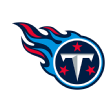
The star of the game, however, was kicker Chris Boswell. The veteran went 6-for-6 on field goals, including successful tries from 51, 56 and 57 yards. He also filled in as an emergency punter when Cameron Johnston went down injured, firing off a much-needed 43-yard punt while the Falcons were still within one score with 3:29 to go. Like the Bears, Pittsburgh won without scoring a single offensive touchdown.
The bigger story might have been Cousins, who clearly looked limited in his first game back after a torn Achilles last November. He topped out at 10.4 mph per the NFL's Next Gen Stats, his lowest top speed in any game since 2017. He didn't do anything that qualified as sprinting for just the fifth time over that stretch, and he ran for just 46 yards at a speed of more than 6.5 mph across 50 snaps. That's his lowest mark by a considerable margin. He usually averaged about 5 sprint yards per snap before the injury. While I'm not sure that's a meaningful stat in every situation, it's further evidence he wasn't accelerating often in his return from injury.
In practice, the offense was compromised by Cousins' lack of mobility. As ESPN's Field Yates noted, the Falcons ran the ball 81% of the time out of the pistol and not once on 22 snaps out of shotgun. Cousins took just 4% of his snaps from under center, and as Yahoo's Nate Tice pointed out, the Falcons didn't run play-action on a single snap. Cousins' best seasons have come in offenses in which he was under center and working with heavy doses of play-action.
A healthy Cousins should be playing ahead of rookie top-10 pick Michael Penix Jr. This version of Cousins doesn't appear to be healthy. If Atlanta continues to struggle and its offense is as predictable and inefficient as it was Sunday, the calls for the rookie are going to come earlier than we expected.
Surprising: Dak Prescott signed a four-year, $240 million deal Sunday afternoonThe deal Prescott signed shouldn't be surprising. It was hardly a well-kept secret around the NFL that he was going to be the first $60 million player in league history when he signed his next contract, whether that deal came with the Cowboys or another franchise. And while he could have maximized his leverage by waiting until after the season or entering unrestricted free agency next March, he was able to realize a 50% raise on what he had been making on his prior deal without needing to move out of the Dallas-Fort Worth area. Unless he ended up in another state with no income tax, this might have ended up being an even bigger deal than what he could have earned in unrestricted free agency.

We're still waiting on the full details of the guarantees within the contract, but it would be a surprise if Prescott wasn't locked into the starting role through 2027, if not 2028. Dallas will have to make changes as it pays Prescott, wideout CeeDee Lamb and eventually edge rusher Micah Parsons what will be north of $130 million per season across their respective contracts once it gets the star pass rusher's deal done, but losing Prescott would have set back the franchise. The Cowboys gave Trey Lance a long look in the preseason, but the former 49ers quarterback looked overmatched and woefully rusty across 113 pass attempts, 44 more than any other passer attempted in August. Lance is still younger than some rookies in the 2024 draft class, but he's not ready to step in as a starter and might never get to that point.
What's interesting about this deal to me is the timing. While most people in the league expected the Cowboys to eventually sign Prescott to an extension, and the organization has a habit of pushing deals to the brink of deadlines before getting those contracts done, I'm not sure anyone expected it to come in about an hour before the first Sunday kickoffs of Week 1. The timing -- and Lance's usage in the preseason -- suggests the Cowboys might have given Lance a real look before deciding that they were going to commit to Prescott on another deal.
More realistically, I can see arguments for both sides wanting to wait until the beginning of the season before announcing this contract. From Prescott's side, he was able to get the record-setting deal he wanted without having to endure months of headlines about how he might perform after getting his money. The headlines about his contract were quickly buried by updates on Tyreek Hill's brief detainment and everything that went down on the field. Prescott won't be able to avoid criticism if the Cowboys struggle, but the conversation about him getting paid will disappear by Tuesday morning.
And for the Cowboys, who spent months seemingly arguing with themselves or procrastinating on a Prescott extension, getting the contract done now will avoid conversations about why this didn't get done earlier. They could have had more clarity about their budgets and been more aggressive this offseason if they had managed to get this deal done in April. (Even better, they could have saved money by doing it last offseason.) There was never going to be a significant discount for him, given his leverage, so it's hardly as if they could have waited out their quarterback. Instead, the "all-in" Cowboys spent most of the offseason out of the free agency fray before eventually doing what everyone expected and paying up for Lamb and Prescott.
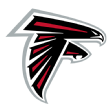
While acknowledging we're one week into the season and five games into his career, Richardson might be the league's most watchable and compelling quarterback. It's impossible to take your eyes off the screen when he's taking snaps because you might see something you've never seen before. He's somewhere between the early careers of Josh Allen and Michael Vick in terms of sheer athleticism translating into impact plays, even if he's not necessarily similar to either.
The loss to the Texans was full of impact plays for his Colts and for their opponents. I have to start with the throw of the week, because I'm still not really sure how Richardson pulled it off. With Derek Barnett bull-rushing right tackle Braden Smith into Richardson's lap, the second-year passer slipped at the end of his drop and lost his balance. As he was about to be engulfed by linemen, Richardson reestablished himself, took a step to the left and heaved a pass 65.3 yards in the air, hitting a streaking Alec Pierce in stride for a perfect touchdown pass.
Anthony Richardson's 60-yard TD pass to Alec Pierce traveled 65.3 yards in the air, the 3rd-longest completion in the Next Gen Stats era.#HOUvsIND | @ScottHanson pic.twitter.com/pbMEvnTFE5
— Next Gen Stats (@NextGenStats) September 8, 2024This would be a difficult throw for most quarterbacks to hit this perfectly in practice during a 7-on-7 drill, let alone in the middle of a game a moment after slipping. There are maybe four other starting quarterbacks who could even complete this pass, and if the throw had been a couple of yards shorter, it would have been an interception into double coverage. There's a good chance this is the best throw we'll see any quarterback make all season.
That alone would be enough in terms of big plays for one day, but Richardson had two other completions top 50 yards. He hit Ashton Dulin on a dagger concept with no room to spare on a 54-yard catch-and-run for a score, then tossed a 50-50 ball on third-and-15 up to Pierce, who brought it in for a 57-yard completion. The league as a whole averaged about five completions of 50 yards or more each week a year ago. Richardson had three this week, and he lowered the shoulder on a fourth-and-goal run for a touchdown for good measure.

And yet, even Colts fans would have felt frustrated with Richardson's game at times Sunday. He left a walk-in touchdown on the field when he badly overthrew rookie Adonai Mitchell on a drive that ended with a bad interception. He wasn't close on a fourth-and-1 throw to Mitchell on the opening drive and then missed another long completion to the rookie later in the game. He averaged 11.2 yards per attempt, but he went only 9-of-19 for 212 yards. The offense was explosive but inconsistent. The Texans were able to run 76 plays to Indy's 43, and by the end of the game, the Colts' defense was exhausted and unable to hold up.
There's still a lot of growth to happen here, and it was a relief to see Richardson avoid some hits as a runner, something that needed to happen after his injury-impacted rookie season. He's going to be must-watch television every weekend he's on the field, and while there will be mistakes as he grows, I'm not sure anybody is going to have a more entertaining highlight reel in 2024.
Surprising: Joe Mixon got 30 carries in the win over the ColtsIn all of the excitement surrounding the Texans and the moves they made in the offseason, I'd argue their new running back got lost in the shuffle. Everyone was understandably intrigued by Stefon Diggs and his arrival into what might have immediately become the league's deepest receiving corps. The addition of Danielle Hunter in free agency as the replacement for Jonathan Greenard gave the Texans a veteran pass rusher with a lengthy track record of success. I think I even talked more about Azeez Al-Shaair than I did about Mixon and what he might accomplish for the Houston offense.
Well, it was a day for the new guys. Diggs scored two touchdowns, albeit in a game in which he turned 32 routes into just 33 receiving yards and had an average depth of target of 1.6 yards. The more impactful player was Mixon, who did something that just six other players accomplished a year ago: rack up 30 carries in a single game.
The 30 rushes tied Mixon's career high, and the former Bengals back turned them into 159 rushing yards and 17 rush yards over expectation (RYOE) in his Texans debut. Mixon had 21 carries for 104 yards in the second half alone, as he helped keep the Colts at bay down the stretch in the 29-27 victory. Eight of his 10 touches in the fourth quarter were successful in terms of keeping the Houston offense on schedule, including his 3-yard touchdown run early in the quarter and the 9-yard run on third-and-3 that sealed the win.
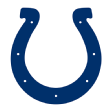
Mixon is not going to be the headline-grabber in this offense, and he won't be featured on many of the team's spectacular plays. C.J. Stroud and Nico Collins teamed up to make magic several times against the Colts, including an inch-perfect throw-and-catch on third-and-11 to avoid giving the ball back to Indy with a two-point lead and two minutes to go. Diggs will have his moments. We know what Tank Dell can do.
Houston's success on offense last season, though, came despite its running game as opposed to through it. An injury-riddled offensive line struggled to develop the continuity needed to thrive on the ground. The coaching staff quickly fell out of love with Dameon Pierce, and while Devin Singletary was a pleasant surprise, the Texans ranked 30th in rush offense DVOA. If Mixon and a much healthier line can indulge coordinator Bobby Slowik's desire to run the football, it's only going to make life easier for Stroud and the passing attack.
Unsurprising: The Panthers got blitzed off the field in an ugly lossAfter one week, the worst team from 2023 looks like 2024's worst team. The Panthers spent big to try to develop Bryce Young this offseason, but the embattled 2023 first overall pick threw an interception on his first pass attempt of the season. A Saints team that was routinely booed off the field on offense last season and struggled to build a cohesive offensive line during the preseason looked like it was the Drew Brees-era Saints for one week, as Klint Kubiak's offense scored on each of its first nine possessions before calling off the dogs in what ended up as a 47-10 victory.
A new-look Carolina defense that shed eight of its 11 most-used players from a year ago didn't look better for the subtractions. Deep safety Jordan Fuller got lured in by an underneath crossing route and left the middle of the field free for a deep post by Rashid Shaheed on the 59-yard touchdown that opened the scoring. A motion from Taysom Hill lured in two defenders, leaving Juwan Johnson open on a blown coverage for a 16-yard score. The Panthers got the Saints in first-and-20 twice and immediately allowed completions of 17 and 18 yards. Hill and Alvin Kamara were successful by expected points added (EPA) on 14 of their 20 rush attempts.

1:00
Bryce Young throws a pair of interceptions in Panthers' drubbing
Bryce Young throws a pair of picks as the Saints boat-race the Panthers 47-10.
Panthers fans might have been willing to tolerate an awful game from the defense if the offense looked good, but there was little to write home about. Young wasn't constantly pressured the way he was on seemingly every third down as a rookie, but he was sacked three times on slot pressures by cornerback Alontae Taylor. They couldn't run the ball, as the 15 carries by their running backs produced 41 yards, and they subsequently went 1-for-10 on third down.
Young finished 13-of-30 for 161 yards with two picks, but the worst number might have been his off-target rate, which was a league-high 37%. We don't know what he would have looked like if he had gotten off to a solid start, but he looked as if he played the entire game sped up and overwhelmed. His footwork was noticeably inconsistent, and while he would have the occasional snap in which he would play crisply and make an accurate throw, he simply wasn't an accurate enough quarterback because of those footwork issues. No player is great when under pressure, but Young was 2-of-9 for 24 yards with an interception and four sacks when pressured Sunday. The average quarterback posted a 62.6 passer rating under pressure in Week 1. Young had a passer rating of 0.0.
The scary thing for the Panthers, at least on paper, is the Saints had the least-imposing pass rush of the teams on their September schedule. They get the Chargers, who beat up Gardner Minshew most of the day in their opener, next week. Maxx Crosby and the Raiders follow, with former Saints draftee Trey Hendrickson leading the way for the Bengals the following week. None of those teams looked great in Week 1, but New Orleans was coming off a season in which most fans felt like the team should have fired its coach. As bad as the Panthers were a year ago, this loss might have been the worst of the Young era so far.
Surprising: Antonio Pierce's fourth-down decision to punt in the fourth quarter against the ChargersI've been covering the NFL for about 15 years now, and over that time frame, the decisions made by NFL coaches on fourth downs have collectively leveled up several times over. There's still plenty of second-guessing when decisions go wrong -- and the majority of coaches are still far more conservative on the whole than history suggests they should be in go-for-it situations -- but we don't see many egregiously bad calls on a week-to-week basis.

There were two in Week 1, however. One came late in the Packers-Eagles game, when Matt LaFleur opted to kick a field goal down five points with eight minutes to go. The other was Sunday from a coach we're going to get a longer look at this season in his first full year as a decision-maker. And while some decisions don't end up directly impacting games, Antonio Pierce's call to punt in the fourth quarter ended up helping seal the game for Jim Harbaugh's Chargers.
Let's set the scene. In a sloppy, low-scoring game, the Raiders trailed 16-10 with 7:43 to go. After an Alexander Mattison catch, Vegas faced a fourth-and-1 on the Chargers' 43-yard line. With little hesitation, Pierce sent his special teams out to pin the Chargers inside their own 10-yard line, and star punter AJ Cole landed them at the 8.
While the Raiders were in a tough position regardless of Pierce's decision, this was a disastrous call. ESPN's model pegged the choice to punt as costing Vegas nearly 6 full percentage points of win expectancy, cutting the team's chances of winning by nearly a quarter. Other models pegged it as an 8.5-percentage point swing. The Surrender Index model, which compares punts and how "cowardly" they are to other punts given game situations, suggested this was one of the most disastrously conservative punts of the past 25 years.
It was a punt that was virtually unprecedented in what might be considered an analytics-friendly era. If you go back to 2001 through 2009, when Pierce was a player in the NFL, this would have been considered a closer call. Trailing by one score or less on fourth-and-1 between the opponents' 40-yard line and 49-yard line, teams punted about 39% of the time. I wouldn't have recommended that move at the time, but it was a choice teams occasionally made.
We know better than that now. If we look at the six-year span from 2018 to 2023, teams faced those same situations 79 times. They went for it in 78 of those 79 cases, with a lone Patriots punt from 2022 as the exception. This was a call out of the football stone ages.
It's hard to understand what Pierce was thinking. The Raiders had failed on a fourth-and-1 earlier in the game, but I'm not sure they could afford to be patient. They were trailing by six points with less than eight minutes to go, meaning they were going to need a stop and a touchdown to win or two stops and two field goals to tie. They hadn't been successful moving the ball consistently throughout the game, but they had run the ball effectively at times in the second half, and punting and playing field position would have required them to go on a longer drive. Their best chance of scoring a touchdown, given their position on the field, was by scoring on their current drive.

Did Pierce want to avoid giving the Chargers momentum with a fourth-down stop? Maybe, but what happened gave the Chargers both momentum and a game-sealing score. Los Angeles picked up a first down on the opening series of the next possession, and two plays later, J.K. Dobbins broke loose for a 61-yard run. The Chargers finished their drive with a touchdown and a 12-point lead, and the Raiders didn't come close to making them sweat the rest of the way.
Pierce is an inexperienced coach, particularly by NFL standards. The former Giants linebacker was clearly able to connect with the Vegas roster last season when he was installed as the interim coach after Josh McDaniels' firing, and having passed up interim coach Rich Bisaccia against his players' wishes to import McDaniels two years earlier, it's no surprise team owner Mark Davis decided to keep Pierce on as the permanent coach. It's unfair to judge Pierce's aptitude by one bad decision, but it's a mistake he has to learn from as he manages more game situations this season. If he continues to defend the call, as he did after the game, it's not a good sign for what he'll do in similar situations.
Surprising: The league wasn't overrun with hip-drop tacklesThis might be surprising only if you read the commentary after the league banned hip-drop tackles this offseason, which suggested defense would be impossible and games would be overrun with either missed tackles or penalties on defenders who were trying their best to stay afloat in a game weighted further and further toward the offensive side of the football.
In reality? I'm not sure we would have even known there was a rule change. From what I've seen, there wasn't a single hip-drop tackle penalty called in Week 1. Furthermore, while I can't watch every single tackle overnight, there haven't been many complaints across the league about missed hip-drop tackles. The only hit that seemed to go viral with concerns about an uncalled penalty was an early tackle of a scrambling Josh Allen, and from the angle shown, it doesn't appear to meet the league's criteria for a tackle worth penalizing. (The defender drags Allen down, but he doesn't appear to put his weight on Allen's legs.)
The league has acknowledged that most calls won't be made in real time, given the difficulty of judging these hits, and that incidents are more likely to be punished by midweek fines as opposed to game-day flags. It's possible we'll see some fines for hip-drop tackles later this week. The defensive apocalypse that was going to come as a result of the rule change, though, appears to have ended before it ever began.
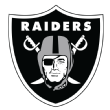
Sunday wasn't a great season debut for the Broncos, but the highlight of their day was what happened on the defensive side of the ball in the first half. Although the defense eventually got tired and collapsed in the second half against the Seahawks, Vance Joseph's unit gave Seattle trouble for most of the first half, limiting it to six first downs and 102 yards on 24 plays.
The other thing that D managed to pull off is something I'm not sure many of us have ever seen: Who racks up two safeties in one quarter? Seahawks guard Anthony Bradford committed holding in his own end zone for the first safety, and running back Zach Charbonnet was tackled beyond the goal line for the second. Most teams don't manage two safeties all season. Denver got two in about seven minutes of game time. Then it tackled Kenneth Walker inside his own 3-yard line in an attempt to get a third safety on the day.
The last time a team managed two safeties in the same quarter was 2011, when John Skelton took a sack and committed an intentional grounding penalty on two separate plays inside his own end zone across four minutes of game time. The Rams got Skelton that day, but they also lost the game, like the Broncos. Picking up four points and landing two possessions with positive field position would seemingly push you a long way toward a victory, but it wasn't enough for Denver.
